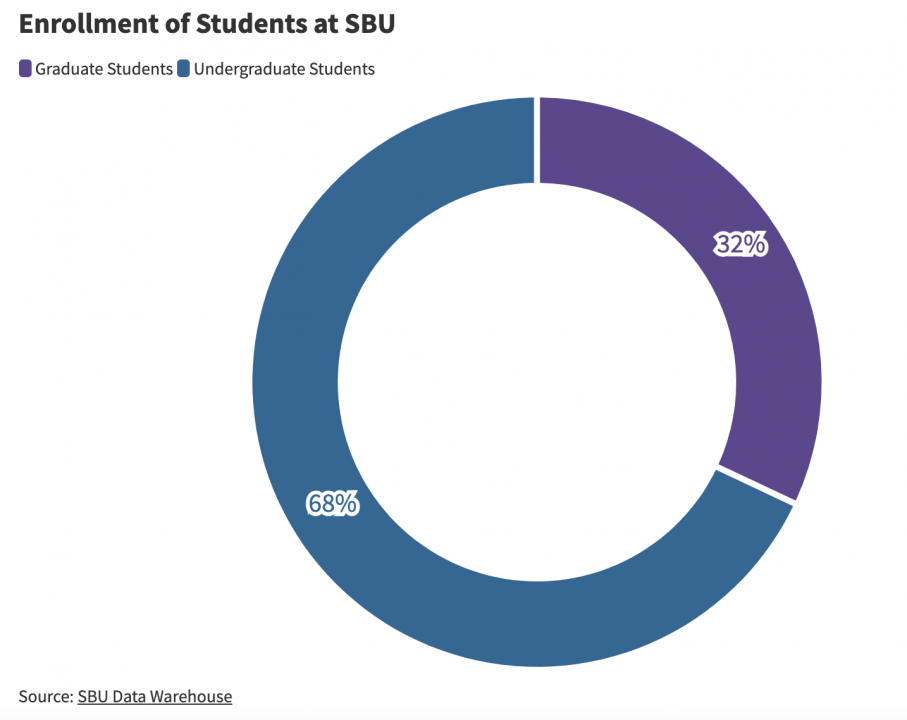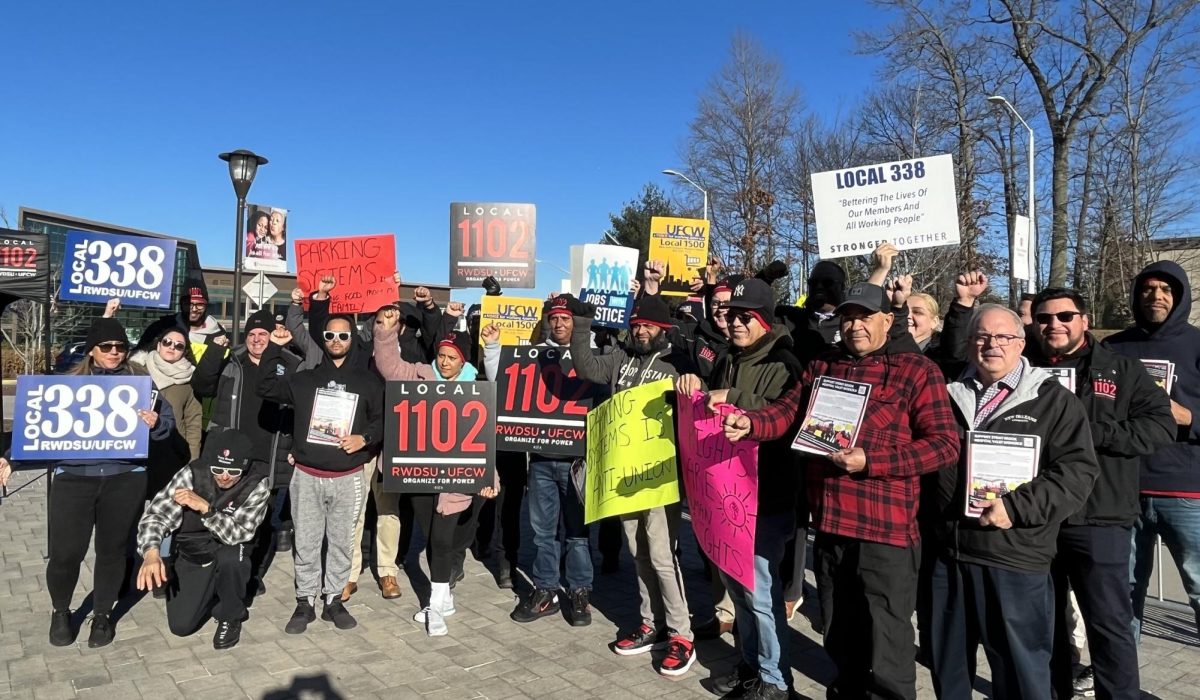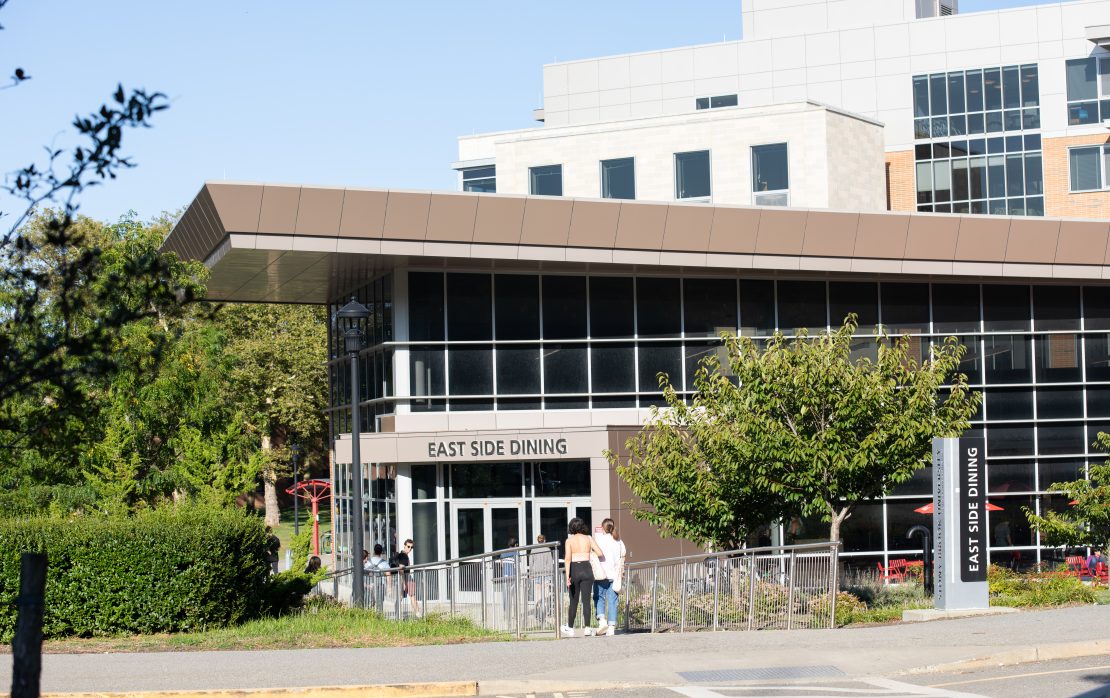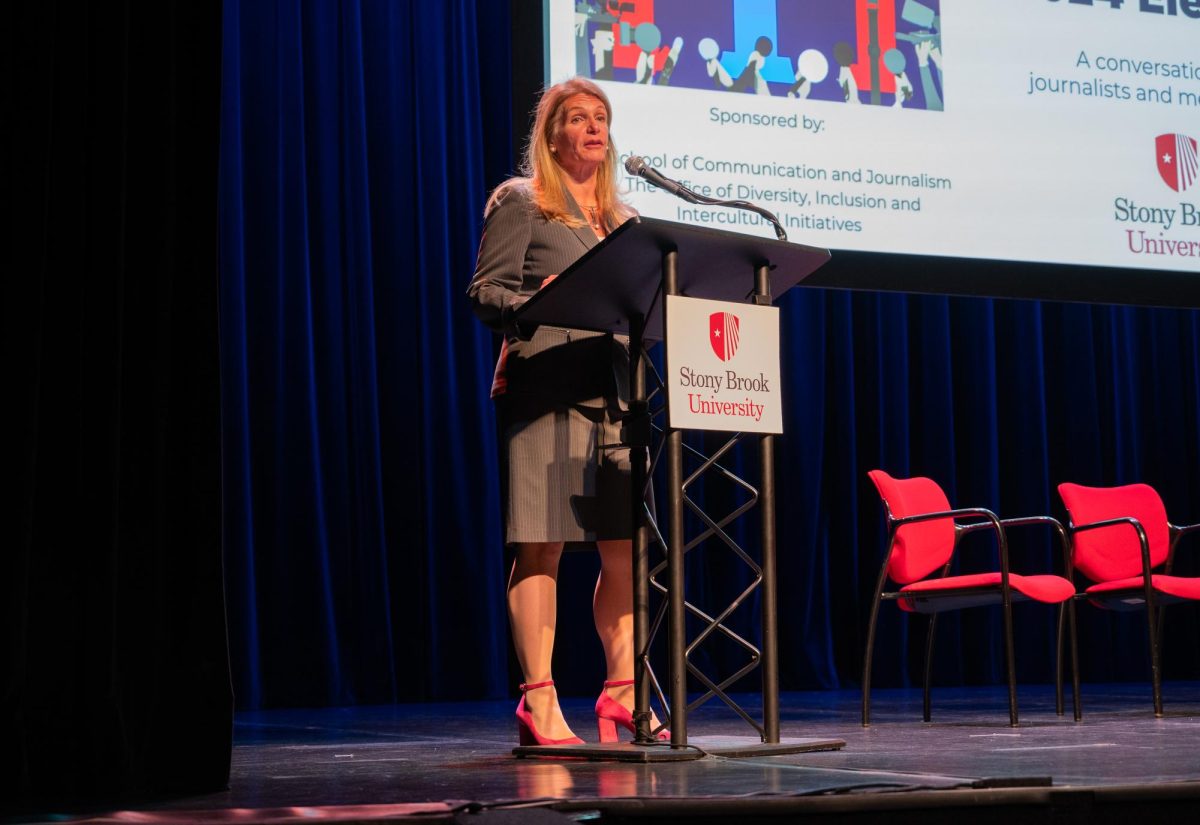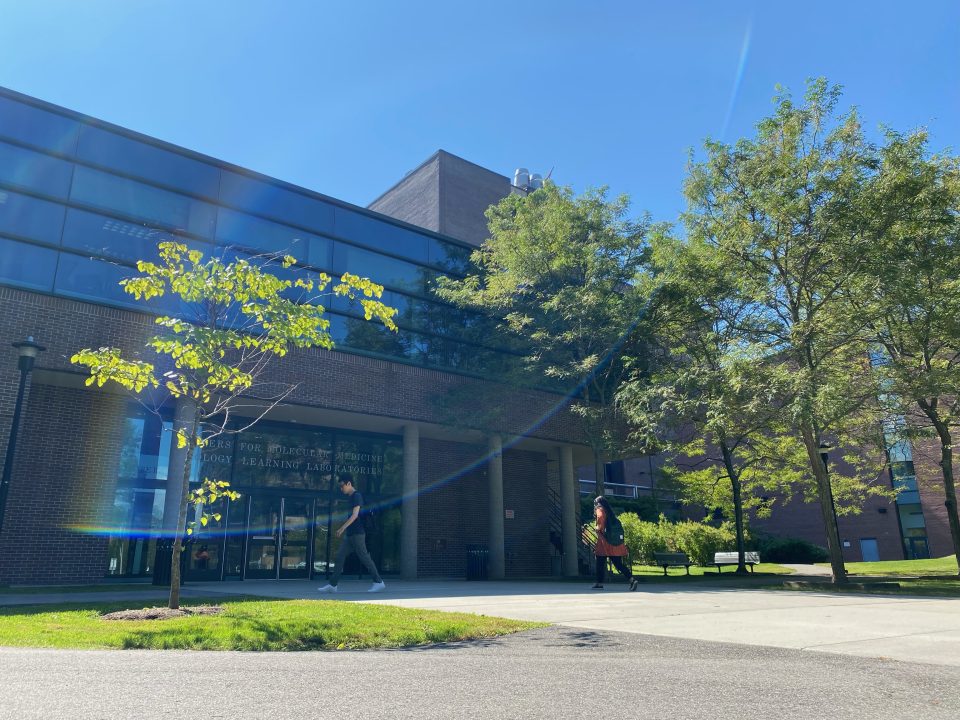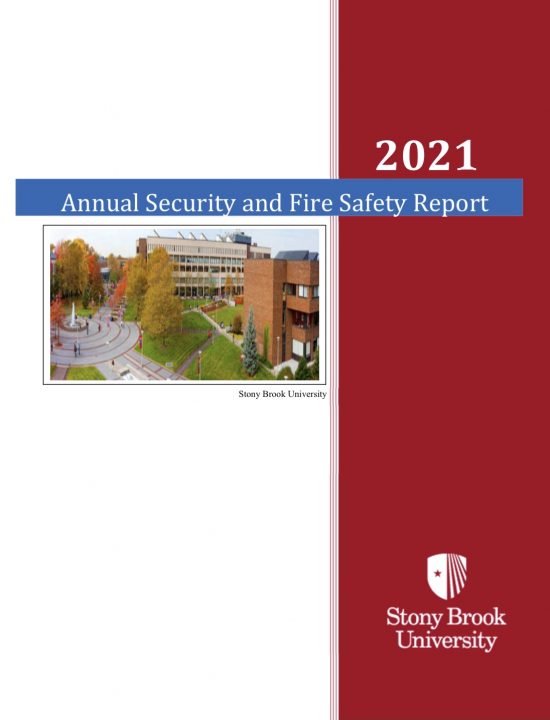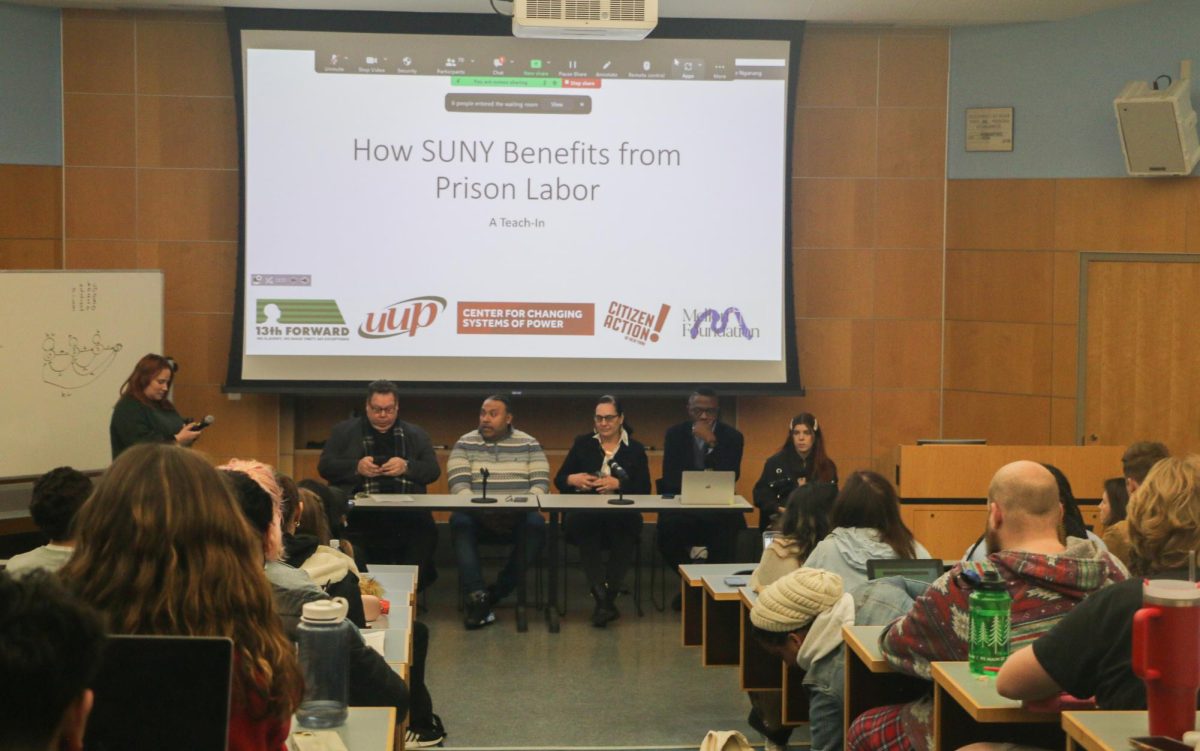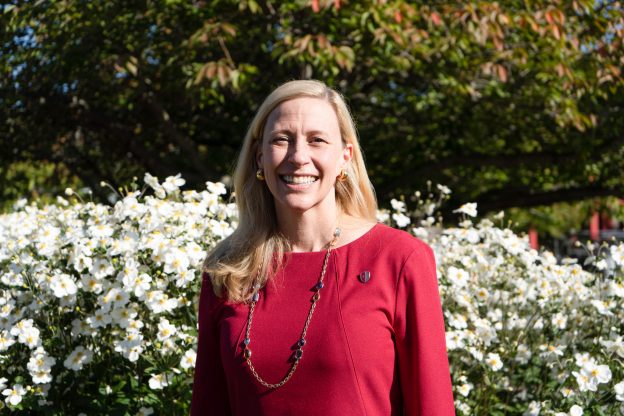
By Sara Ruberg and Steven Keehner
The world was on the edge of the deadliest pandemic in a century when President Maurie McInnis took office on campus.
Already grappling with a looming budget crisis, social unrest, housing challenges and other issues, Stony Brook also faces the pandemic, which has intensified their existing problems while also producing some entirely new ones.
The president of Stony Brook University (SBU) highlighted how the institution plans to handle these concerns in the near future and after COVID-19, the school’s benefits of being young and her first semester on campus with a more familiar number of students in an exclusive interview with The Statesman.
Managing the University’s budget and deficits has been one of the school’s major concerns in the last decade.
Budget concerns have previously resulted in faculty layoffs, but more recently they have resulted in a hiring freeze, leaving empty positions where instructors and staff once were. However, now that the pandemic-imposed employment embargo has been lifted, McInnis believes the University will be able to make new hires this year, but with a keen eye on the budget.
“What we are in the middle of right now is really getting a handle on our budgets, and what hiring we’re going to be able to allow to go forward this year,” McInnis said.
McInnis revealed the University’s estimated $40 million loss for the fiscal year of 2020-2021 in a Strategic Budget Initiative Update last semester, forcing the University to dip into its already depleted reserves.
“We have to be prudent in terms of our financial position,” she said.
McInnis also said an initiative to hire diverse faculty that received funding back in 2019 will continue even if there is no additional funding for it. The University had received over $957,000 from the State University of New York’s (SUNY) Promoting Recruitment, Opportunity, Diversity, Inclusion and Growth Faculty Diversity Initiative. The money had intended to be dispersed over a three-year period to support the hiring of six faculty members. However, the pandemic put a pause on it.
“This initiative will be central to who we are, always and forever,” McInnis said. “We know we still have an enormous amount of work to do in continuing to diversify our faculty and our staff, and this is a really key priority for us as an institution.”
The financial situation, partially brought on by the pandemic, also paused plans for additional campus housing.
In 2018, at a University Senate meeting, University leaders proposed a project to build a 500-unit housing complex on campus near the newly constructed indoor athletic dome. McInnis said plans for additional campus housing could continue if there is a greater demand for residential campus housing once the pandemic is over.
At the moment, the University does not have approval from the state to complete any new construction.
When SBU students were asked if they approved of the school’s housing conditions in The Statesman‘s State of the University Survey, with the options of “yes,” “no,” “somewhat” or to skip the question entirely, a resounding 84.3% of survey respondents answered no, which was the second-most popular answer chosen across any of the questions in the survey.
“Those facilities, they’re getting wrinkled, they’re aging,” McInnis said about on campus housing. “Yes, we listen to these complaints. We want to improve those conditions, but we are, as a state institution, completely bound by the amount of money the state is willing to invest.”
The ongoing COVID-19 pandemic has had a financial impact on Stony Brook, but campus conventions, such as mask requirements within University buildings, continue to affect students as well. According to the president, this is expected to continue indefinitely.
“We always have to wait first to see whether there’s going to be state guidelines around different decision points,” McInnis said about COVID-19 protocols on campus. “We always work closely with [the governor’s office and the SUNY Chancellor] in our decision making.”
However, with the return of students to campus this semester, a formal and typical return to student activism has occurred.
Most recently, the Graduate Student Employees Union (GSEU) presented a 10-foot petition to the president’s assistant demanding higher wages for graduate students working for the University.
McInnis told The Statesman this was her first time hearing GSEU’s concerns. She said Provost Paul Goldbart is open to speaking more with union leadership to hear out their concerns.
Last year, GSEU organized a COVID-safe protest to abolish student fees for graduate students. The union fought years prior to 2020 to end graduate student fees, and the group was successful in their protest last semester as student fees were lifted for graduate students.
McInnis emphasized the idea of freedom of speech and ideas as an institution of higher learning, even if such ideas are contentious in themselves. This includes the recent anti-vaccine mandate rally on campus organized by Turning Point USA, which was met with opposition from various groups.
“We are a public institution, and we are in a role of modeling the fact that in the U.S., we allow for people of differing opinions to have a right to a public forum to express their opinions,” McInnis said. “The fact that we allow it doesn’t mean we agree with it, but we agree with the principle of free speech, and that part of the educational process actually is encountering people who have different ideas.”
On a larger scale, McInnis stated a desire to better understand the student body, which she concedes is still a work in progress. In The Statesman survey for the State of the University special issue, around 73% of students believe the administration is not transparent.
“I am well aware that students don’t always read the emails that are sent to them,” McInnis said in response to the survey results. “We have tons of information up on websites and we send a lot of information in emails, but if that’s not transparent, help us understand what is.”
Despite the challenges facing McInnis and Stony Brook University, she remains optimistic. “I think it’s up to us to keep listening to you all to see what else can we do in support of building on this new enthusiasm for being together,” she said.
As McInnis stated, Stony Brook is in a unique position to be at the forefront of development throughout its history. Because the school was founded during a period of radical upheaval in the United States, there is a sense of obligation for the school to fight for those causes not just today, but for the foreseeable future.
“We were born in the 1960s, this period of extraordinary societal change and growth, the civil rights movement, artistic flowering, the race to the moon and the birth of doing science and working together to solve big problems,” McInnis said. “That’s really our DNA.”
An appreciation of what the school has to celebrate today goes far beyond the school’s quest to set a standard. Although McInnis is in her second year as president, this is her first semester with a significant number of students on campus, which she is relishing.
“Now that we are more back in person and life has returned to this campus, I have seen so much appreciation for the ability to be together to be able to learn and do things together as a community,” McInnis said. “So it’s not been the year and a half I expected, but indeed, it has been a very special one, and I’m really thrilled to be a part of this community.”
Maya Brown contributed reporting.







